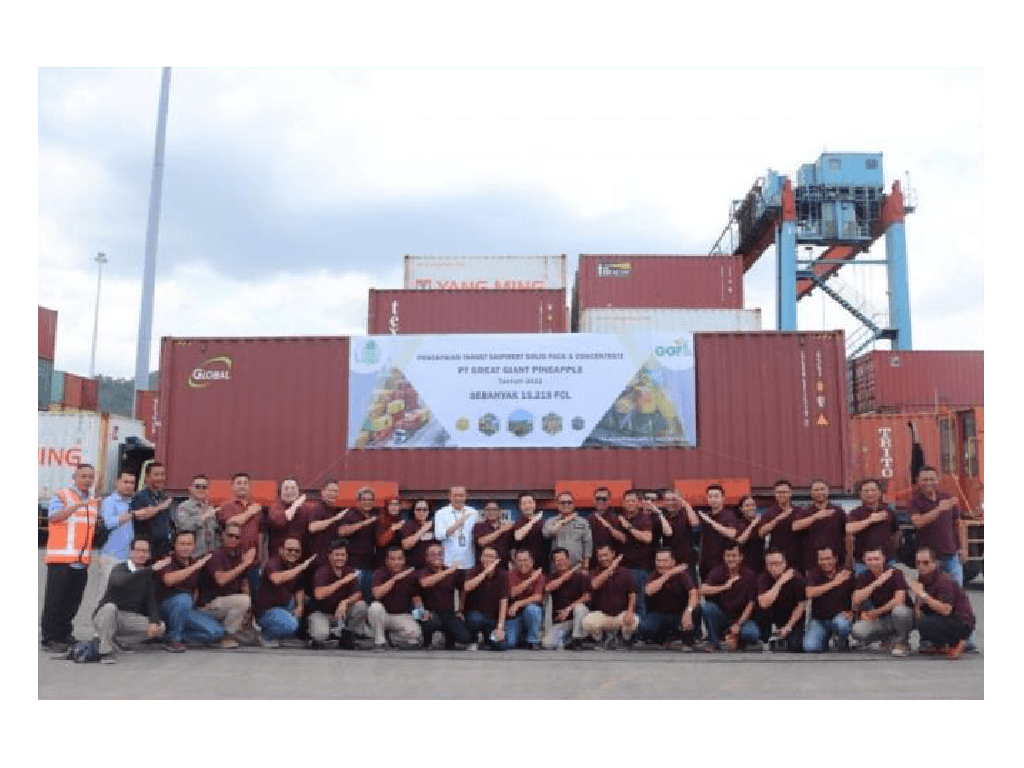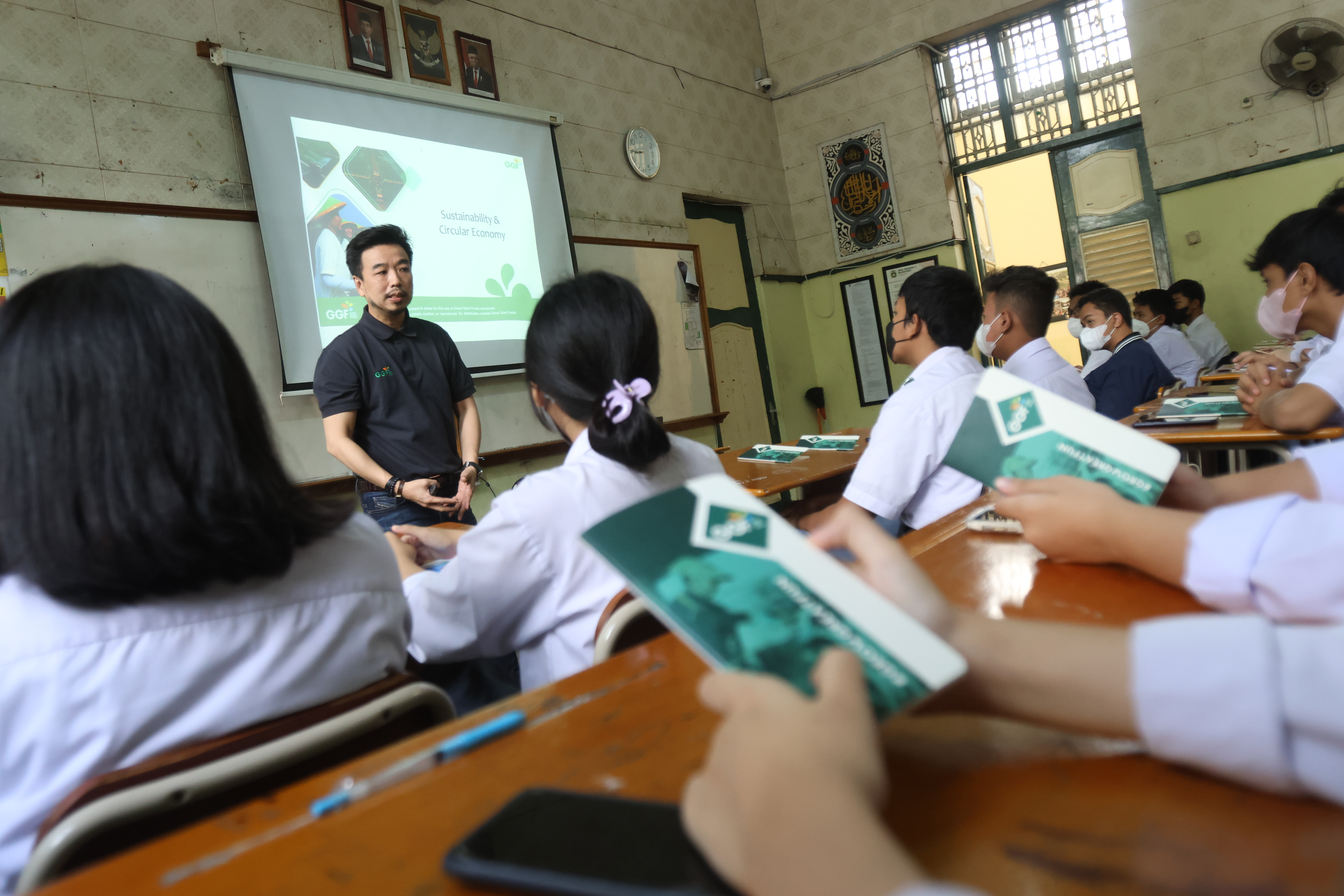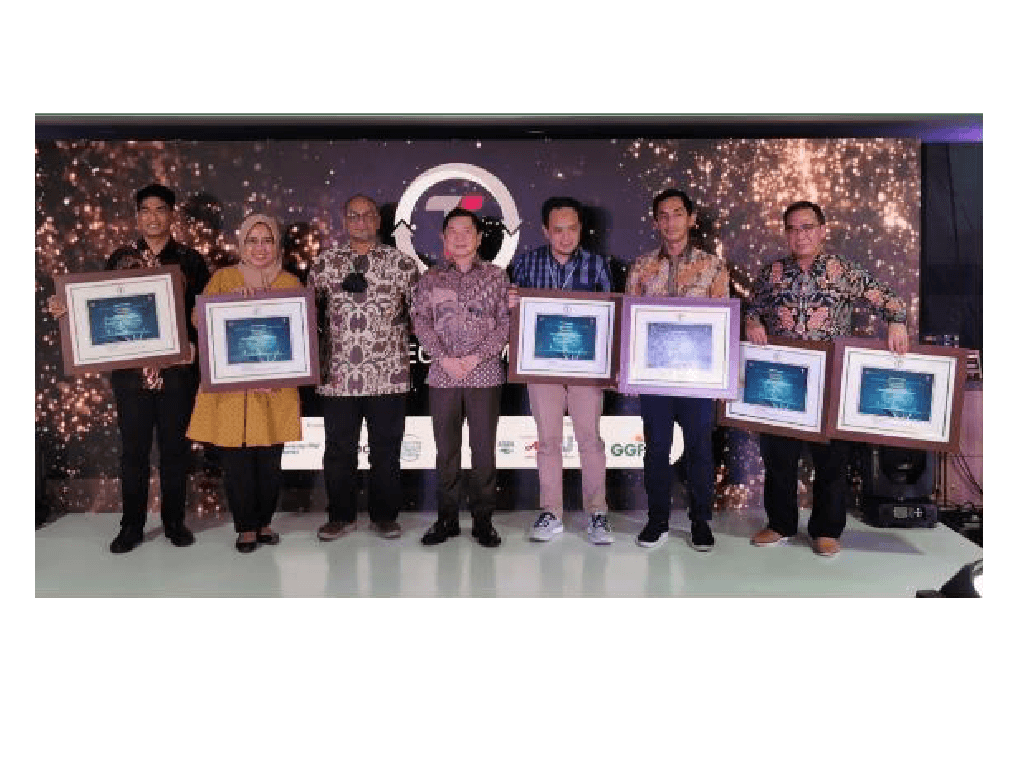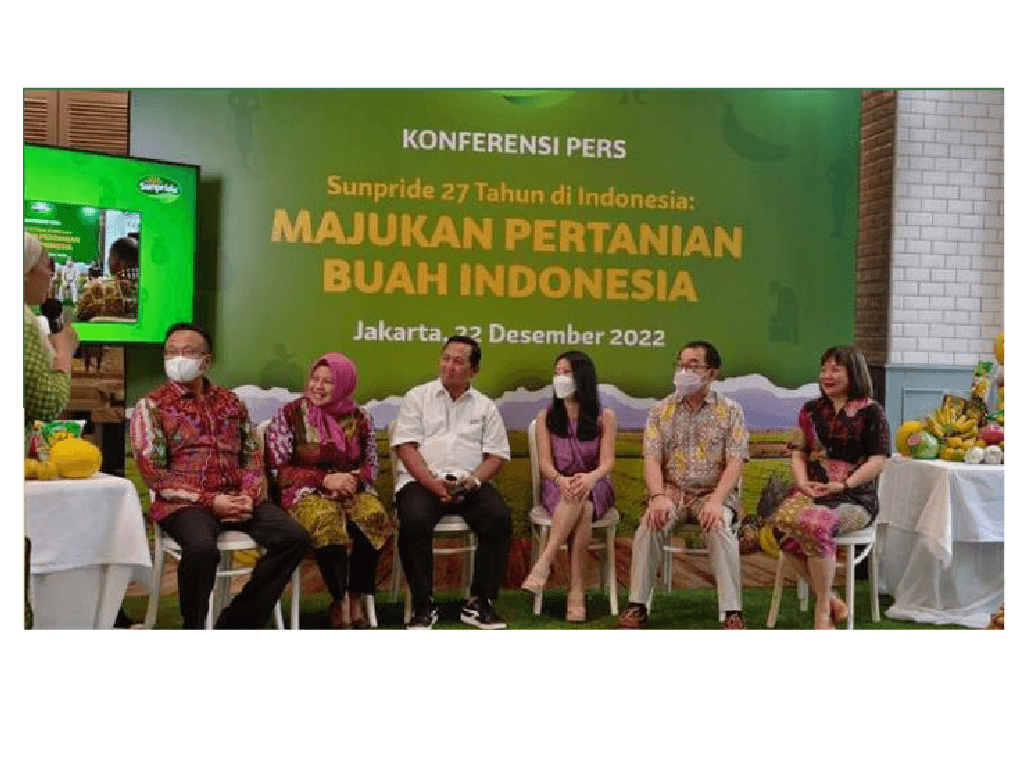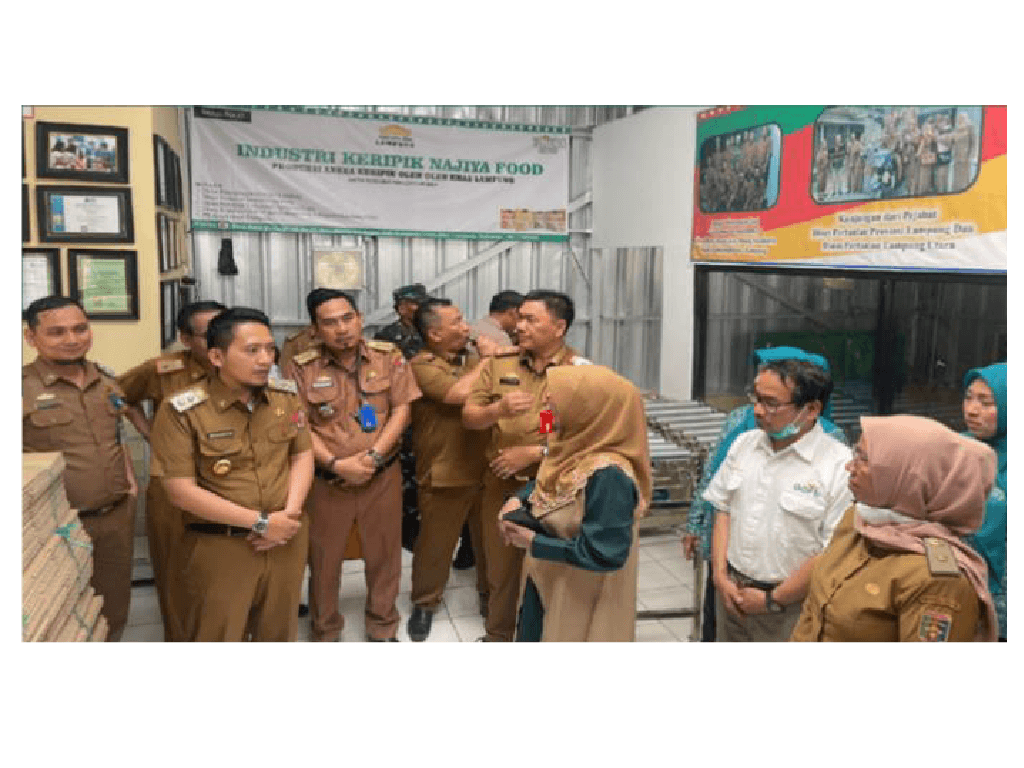For achieving the 2022 Solid Pack & Concentrate Shipment target, PT Great Giant Pineapple (GGP) held a ceremony with PT Pelabuhan Indonesia (Pelindo) Regional 2 Panjang on Thursday.
A total of 15,215 Full Container Load (FCL) owned by PT GGP with various processed Lampung products, especially pineapples, have been distributed through the Panjang Regional Port 2 with destinations to various continents around the world, from Asia, Europe, Africa to the Americas.
The activity which was attended directly by the General Manager of Pelindo Regional 2 Panjang Adi Sugiri accompanied by the Area Manager of PT IPC Container Terminal Long Area Budi Daryono together with the Director of Production of PT GGP Wayan Ardana accompanied by the Director of Sales and Marketing Benhard Wewengkang.
In his remarks the General Manager of Pelindo Regional 2 Panjang expressed his appreciation to PT Great Giant Pineapple for the achievements achieved in 2022 for having distributed 15,215 FCL to various shipping destinations both to inter-island and export to various countries.
This has also made PT GGP a strategic partner because of its significant contribution to the company from year to year.
“In the future the collaboration between Pelindo Regional 2 Panjang and PT Great Giant Pineapple can be established for various other port services, namely warehousing services, stacking services and other services. And we are committed to always innovating in providing the best service for our service users so that this can have a better impact on the economy of Lampung Province,” said Adi.
On the same occasion the Director of Sales and Marketing of PT GGP also expressed his appreciation to Pelindo Regional 2 Panjang for providing support by providing optimal service to its service users based on a 24/7 operational system and supported by modern digitalization.
This is what makes it easier for service users to carry out port activities so that service users are able to realize the target of loading and unloading activities at the Panjang Regional Port 2.
With this achievement, we hope that the synergy between service users and service providers can be developed in other forms of cooperation that will have an impact on the economy of Lampung Province. This activity was followed by a field visit to the pier area E of Regional Port 2 Panjang and ended with a group photo with the participants present
